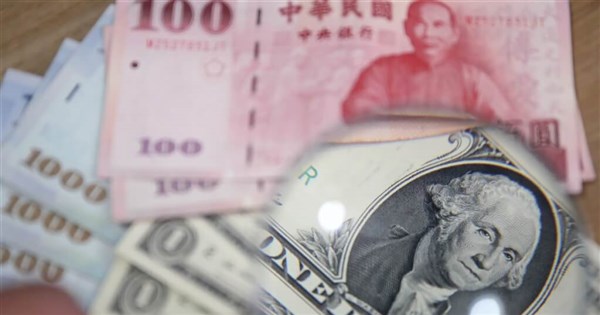
Washington, Nov. 7 (CNA) Taiwan has been kept on a monitoring list of currency manipulation by the United States government in its semi-annual report on the “Macroeconomic and Foreign Exchange Policies of Major Trading Partners of the United States.”
In the latest report submitted to the U.S. Congress on Tuesday, the Treasury Department said it found that no major U.S. trading partner has manipulated exchange rates to get an unfair competitive edge in international trade during the four quarters through June 2023.
Taiwan remained on the watch list for currency manipulation, however, as did China, Malaysia, Germany, and Singapore, while Vietnam was newly added to the list, according to the report.
The trading partners analyzed in the report accounted for about 78 percent of U.S. foreign trade in goods and services, the department said.
In the previous semi-annual report released in June, Taiwan, China, South Korea, Germany, Malaysia, Singapore and Switzerland were put on the watch list.
Criteria
The U.S. Treasury report uses three criteria to determine if any of its trading partners should be named as currency manipulator nations.
They are: having a trade surplus with the U.S. of at least US$15 billion; having a current account surplus of at least 3 percent of GDP; and persistent intervention in the foreign exchange market, shown by net purchases of foreign currency of at least 2 percent of GDP.
When an economy meets only one of the three criteria for two U.S. currency reports in a row, it is removed from the monitoring list. If, on the other hand, a country meets all three criteria, it can be tagged as a currency manipulator.
According to the report, Taiwan met the trade surplus and current account surplus criteria but estimated that “foreign exchange intervention was limited in the first half of 2023, consistent with muted currency movements.”
It advise Taiwan to “deploy a a careful mix of policies that better insulate the economy from external shocks and address structural issues to reduce external sector imbalances,” especially in terms of diversifying its energy imports.
It also said Taiwan’s “foreign exchange intervention should be limited and allow currency movements in line with economic fundamentals.”
Nov. 4: Market intervention sends forex reserves lower for 3rd month in October
Nov. 3: Central bank board members strike hawkish tone: Meeting minutes
In a statement, Treasury Secretary Janet Yellen said “most foreign exchange intervention by U.S. trading partners over the Report period was in the form of selling dollars, actions that served to strengthen their currencies.”
“However, Treasury remains vigilant to countries’ currency practices and the Biden Administration strongly opposes attempts by the United States’ trading partners to artificially manipulate currency values to gain unfair advantage over American workers,” Yellen said.
The report also called for greater transparency from China, saying its failure to disclose foreign exchange interventions and its lack of transparency on key features of its exchange rate mechanism made it an outlier among major economies and warranted close monitoring.
According to the Treasury Department, the report was pursuant to the Omnibus Trade and Competitiveness Act of 1988 and the Trade Facilitation and Trade Enforcement Act of 2015.



